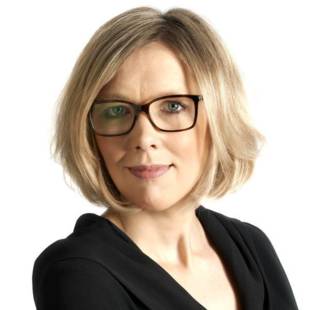Smart living: creating a framework for disruption and innovation

Key contacts
The concept of smart living revolves around the idea that our lives can be augmented by transformational technologies that connect our home, work, transport and leisure environment. Its success will depend on governments and authorities giving the private sector the freedom to innovate and disrupt.
New procurement structures
To build new public infrastructure, governments and authorities traditionally invite bids based on specific requirements from the private sector. Yet with lifestyles changing at such a rapid rate and increased innovation, procuring authorities will need to rethink these processes.
François Tenailleau, a partner in the Public Law / Infrastructure Group at CMS in Paris, believes that there are going to be fundamental changes in public contracts, “Rather than traditional public procurement, I expect to see more of a call for innovation and solutions.”
He says it could be a case of authorities requesting innovation or asking for ideas rather than specifically defined requests for proposals.
Public authorities should give innovators and disruptors the space to promote transformational ideas and then collaborate with them to deliver on a project. Kawthar Ben Khelil, a counsel in the Public Law / Infrastructure Group in the CMS Paris office, warns against rigidity and strictly defined criteria that would stifle innovation and creativity.
"Such flexibility is essential for testing new smart solutions. For example, the adoption of e-scooters in cities around the world has raised health and safety concerns. Paris has had to reframe the regulations for e-scooter hire and use.”
With heated competition amongst multiple providers, the French capital reduced the number of e-scooter companies to three, limited scooter speeds to 24km/h and ruled that they must stick to cycle routes where available.
Connecting work, home and leisure
The e-scooter phenomenon illustrates that smart living concepts go beyond the home or workplace. The full potential of the model is dependent on connecting the principal elements of daily life including homes, mobility, work and leisure. The UN forecasts that 60% of the world’s population will live in urban areas by 2030. This increased urbanisation will create opportunities to develop connected and innovative environments in more concentrated locations.
At present, smart living initiatives are in large part about making incremental changes, but there are possibilities to adopt fresh models.
According to Beijing-based partner Nick Beckett, Co-Head of the CMS Life Sciences & Healthcare Group, “Healthcare is likely to become a fundamental part of the smart living concept, with the ability to monitor patients remotely – for example their glucose levels and body temperature.”
Regulators though will have to find ways to deal with associated risks such as the assignment of liabilities as a result of an incorrect diagnosis by an app or a device failure.
Commercialisation
Business models will have to adapt, providing the possibility of new revenue streams.
Real estate, for example, will be one of the sectors heavily impacted by smart living concepts. In newbuild offices and residential properties, tenants will increasingly expect a connected environment. A range of smart services, such as apps and hubs that would enable all connected devices to be controlled from a single place, could transform traditional real estate projects into something more akin to a hotel or members’ club.
Data collected from smart living environments could potentially provide developers or investors with a basis for creating new revenue streams. Understanding how a person or family lives, as well as what their daily routines and preferences are, would allow data controllers to offer and sell targeted services and products. However, commercial contracts will have to be very clear on how the collected data is being used and who owns it.
Clare Thomas, a partner in the CMS Real Estate Group based in London, says, “Institutional investors will have to become more operational in their approach and it will be a challenging journey for them.”
A connected environment will make all organisations, public and private alike, more vulnerable to cyber breaches. Real estate developers and investors too potentially face a new suite of liabilities and duties of care to customers. As data protection and cyber security become more pivotal, they will have to be smart about how they address their vulnerabilities and achieve their aims.







